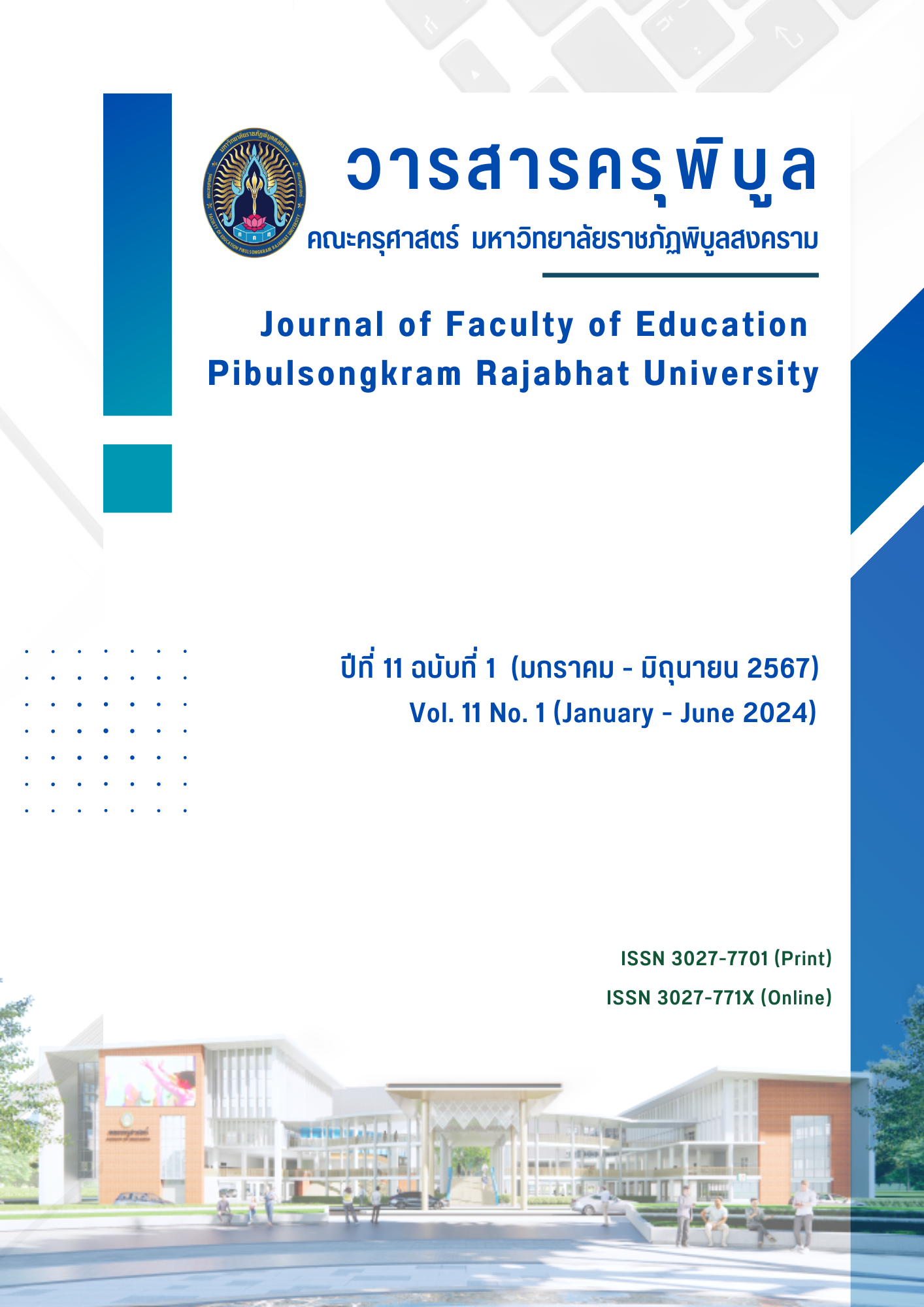ACTIVE LEARNING MANAGEMENT MODEL FOR SOCIAL SCIENCE RESEARCH METHODOLOGY COURSES
Keywords:
learning management model, active learning, social science research methodology course at graduate levelAbstract
The objectives of this research were: 1) to study the weaknesses of learning management in social science research methodology course at graduate level 2) to study opinions on the use of active learning to improve the quality of learning management in social science research methodology course, 3) to develop an active learning management model for social science research methodology course at graduate level. The target population was 9 instructors with experience in teaching the research methodology course for graduate education at Suan Dusit University, Thailand. The research tool was a group discussion guideline. Data analysis was analyzed by content analysis and constant comparison method.
The research results revealed that
1. The weakness of learning management in social science research methodology course at graduate level was the theory-based approach, the absence of practical skills, and the lack of discussion and sharing experiences. As a result, the students were unable to apply knowledge gained from their studies to their thesis as effectively as they should be.
2. According to the opinions of the target population, active learning was appropriate for content subject and able to improve the quality of learning management in social science research methodology course.
3. In this research, the active learning model in social science research methodology course was conducted and explained in detail in 4 topics: 1) Principles and concepts of the model, 2) Purposes of the model, 3) Learning process of the model, 4) Student learning outcomes after applying the model.
References
Abu Bakar, M. A., and Ismail, N. (2020). Mathematical instructional: A conceptual of redesign of active learning with metacognitive regulation strategy. International Journal of Instruction, 13(3), 633-648.
Akınoğlu, O. and Özkardeş Tandoğan, R. (2006). The effects of problem-based active learning in science education on students’ academic achievement, attitude and concept learning. Eurasia Journal of Mathematics, Science & Technology Education, 3(1), 71-81.
Chan, C., et al. (2021). Enhancing generic capabilities and metacognitive awareness of first-year nursing students using active learning strategy. BMC Nurse, 20(81). from https://doi.org/10.1186/s12912-021-00601-7
Demirci, C. and Düzenli, H. (2017). Formative value of an active learning strategy: Technology based think-pair-share in an EFL writing classroom. World Journal of Education, 7(6), 63-74.
Gleason, B.L., et al. (2011). An active-learning strategies primer for achieving ability-based educational outcomes. American Journal of Pharmaceutical Education, 75(9), 1-12.
Jardine, H. and Friedman, L. (2017). Using undergraduate facilitators for active learning in organic chemistry: A preparation course and outcomes of the experience. Journal of Chemical Education, 94, 703−709.
Killian, M. and Bastas, H. (2015). The effects of an active learning strategy on students’ attitudes and students’ performances in introductory sociology classes. Journal of the Scholarship of Teaching and Learning, 15(3), 53-67.
Mahmood, M.A., Tariq, M., Javed, S. (2011). Strategies for active learning: An alternative to passive learning. Academic Research International, 1(3), 193-198.
Office of the Basic Education Commission, Ministry of Education. (2019). Supervision guidelines to develop and promote active learning according to the policy: Reduce Time to Study-Increase Time to Know. https://www.sobkroo.com/articledetail.asp?id=615
Pradit Meesuk and Songtham Theerakul. (2008). The crisis in the quality of graduate education and the role of universities. In Thaksin University, the solution of the national crisis (Collection of articles on Thaksin's academic conference) 16-19 August 2008, Thaksin University, Songkhla Campus, 119-143.
Priyanuch Phromphasith. (2016). Active Learning Management Manual for Hu.So. at KPRU. Faculty of Humanities and Social Sciences, Kamphaeng Phet Rajabhat University.
Rasmi Srinon, et al. (2018). Proactive learning management in the age of Thailand 4.0. Journal of Educational Administration, Silpakorn University, 9(2), 331-343.
Sataporn Pruitthikul. (2012). The quality of learners arises from the learning process. Journal of Educational Administration Burapha University, 6(2), 1-13.
Suchada Kaewpikul. (2012). Mathematic Activities Development using Active Learning by Focusing on Think-Pair-Share technique to Promote Mathematic Learning Achievement and Learning happiness of Mathayomsuksa 2 Students with Low Mathematics Achievement. [Master’s Thesis]. Srinakharinwirot University.
Uthai Dulyakasem. (2017). Conceptual Framework for Lifelong Education in 4.0 Era of Thai Society. Nakhon Pathom: Department of Lifelong Education, Faculty of Education, Silpakorn University.
Warinporn Funfuengfu. (2019). Successful active learning management. Valayalongkorn Review Journal (Humanities and Social Sciences), 9(1), 135-145.
Wichan Kongtham. (2021). The Different of Active Learning and Passive Learning. Faculty of Science, Maejo University.

Downloads
Published
Issue
Section
License
Copyright (c) 2024 คณะครุศาสตร์ มหาวิทยาลัยราชภัฏพิบูลสงคราม

This work is licensed under a Creative Commons Attribution-NonCommercial-NoDerivatives 4.0 International License.
ลิขสิทธิ์เป็นของคณะครุศาสตร์ มหาวิทยาลัยราชภัฏพิบูลสงคราม

